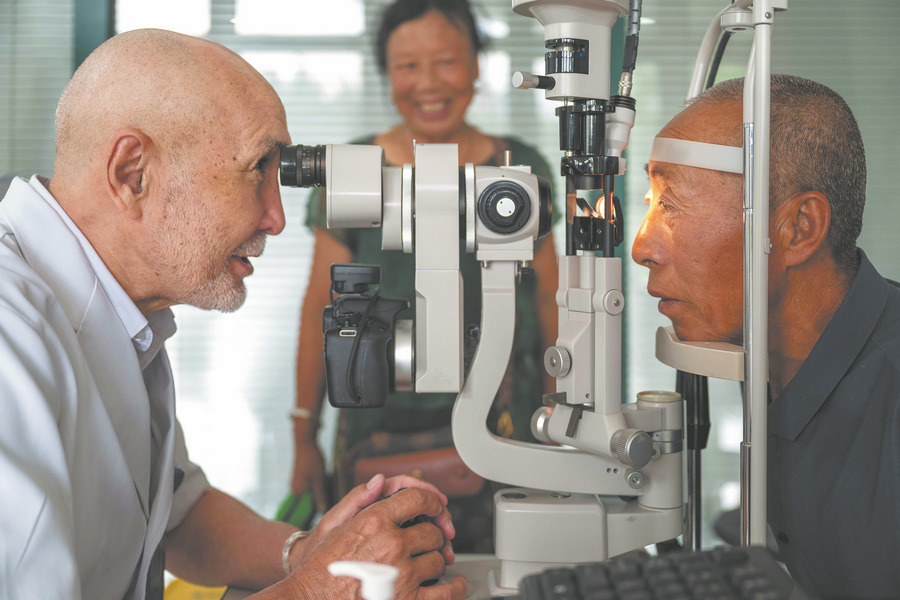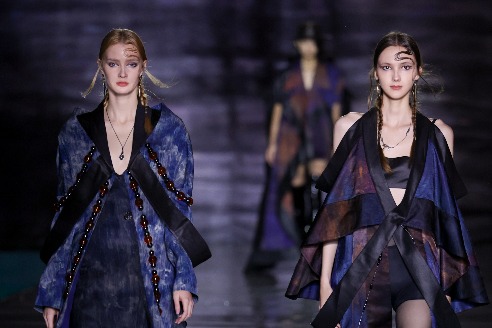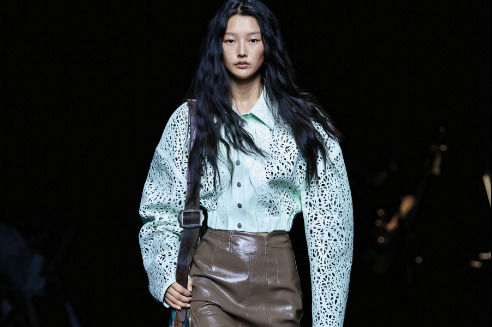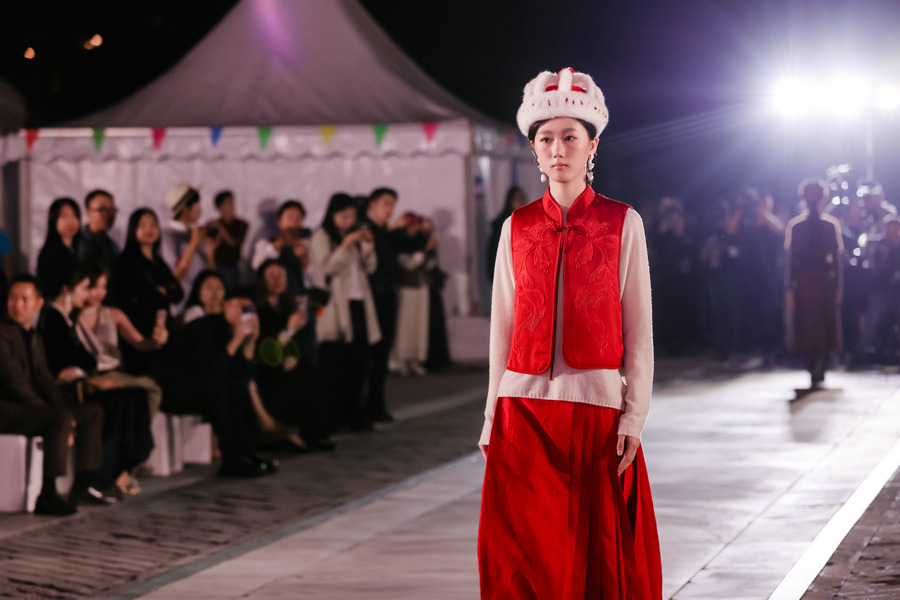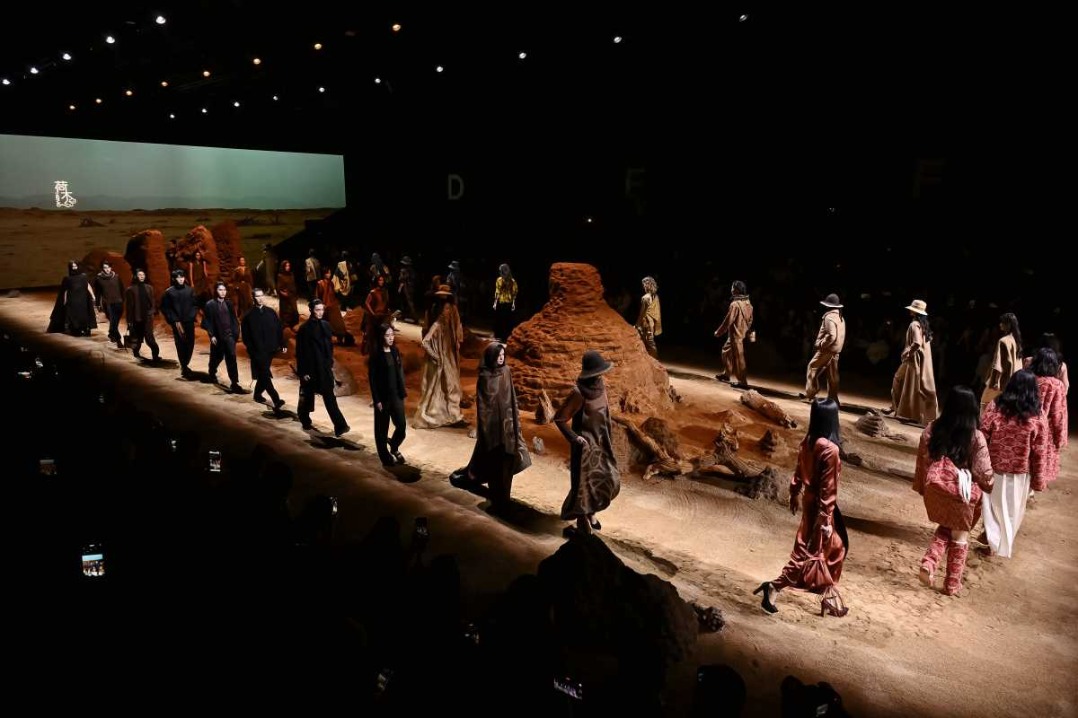Ancient Chinese healing wisdom inspires new British book

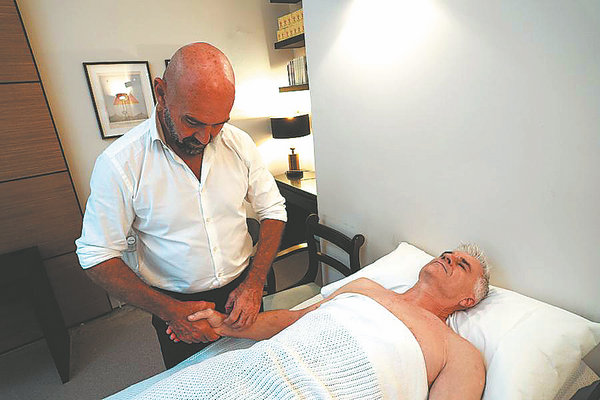
LONDON — When film producer James Eden first walked into acupuncturist Gerad Kite's London clinic seeking relief from stress, he knew little about Chinese acupuncture. Years later, the two Britons sat side by side before an audience, launching a new book on acupuncture that weaves ancient Chinese ideas of balance into stories for a modern and anxious world.
In their cowritten book, The Untapped Self, published in September, Kite and Eden, aged 64 and 61 respectively, explain the philosophy behind Chinese acupuncture, introducing readers to concepts such as qi, Chinese pulse diagnosis and the network of acupuncture points, thus offering a glimpse into how these ancient ideas continue to shape modern approaches to well-being.
"Acupuncture is one of China's greatest cultural gifts to all of humanity," Kite says. "It offers a profound understanding of health that goes beyond symptoms, helping people find balance and harmony with nature and a return to good health."
Kite first encountered acupuncture in the 1980s when he lived in San Francisco. Overwhelmed by work and life, a friend suggested he try it. "One treatment later, I woke up and felt completely different; I was so shocked at the Chinese way of treatment," he recalls.
Trained first as a psychotherapist, Kite later returned to Britain to study acupuncture under the late J. R. Worsley, one of the first who introduced acupuncture from China to the West. Three and a half decades on, Kite has become a veteran acupuncturist and teacher, quietly building a bridge between Chinese ideas of harmony and Western lives that are, as he puts it, "too often locked in our heads".
Kite says the first Chinese book he read was the ancient classic, Yellow Emperor's Canon of Medicine, which introduced him to five-element acupuncture.
According to Wang Jingjing, chief physician with the Acupuncture and Moxibustion Hospital of the China Academy of Chinese Medical Sciences, there are generally two major schools of acupuncture: one focuses on targeted symptom-based treatment, while the other emphasizes natural healing. Five-element acupuncture belongs to the latter.
"It aims to correct imbalances within the patient's body, and its goal is to restore harmony, thereby promoting overall well-being," she says.
With such expertise, Kite established his clinic in central London in 1990. So far, he has provided around 50,000 treatments to patients. He also trains about 50 students each year.
In the new book, he shares the stories of 10 patients as case studies, illustrating how the philosophy of acupuncture can guide people toward calmer, more balanced lives.
"I hold deep respect and gratitude for China as the birthplace of this profound medical tradition that has been my purpose in life for over 35 years," he says. "It is inseparable from the wider body of traditional Chinese medicine and the philosophy of harmony it embodies."
He adds that he also appreciates China's efforts to integrate traditional medicine with modern science.
"By supporting research and development, China is showing how ancient wisdom can stand alongside contemporary medicine. This ensures that the holistic vision of traditional Chinese medicine — which treats the body, mind and emotional state — remains alive, relevant and continually evolving," he says.
Eden, meanwhile, was drawn to Chinese culture from a different path. A longtime meditation practitioner with a deep interest in Chinese philosophy, he spent six months at Wudang Mountain, a sacred Taoist site in China, studying tai chi and kung fu.
He says that this immersion deepened his understanding of Chinese medicine and its approach to health, giving him a sense of duty to share Chinese culture — a mission he now pursues alongside Kite.
"The worldwide spread of TCM shows how deeply it resonates across cultures. People everywhere recognize its effectiveness and the wisdom it carries, whether through acupuncture, herbs or other practices," Kite says.
"It is a privilege to honor these Chinese roots while sharing their healing wisdom with people both here in Europe and around the world," he notes.


















